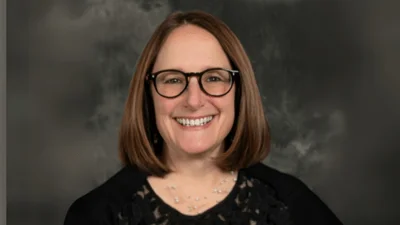Sen. Chapin Rose (R-Mahomet) said recently that the more than $5 billion rise in education pension retirement payments since he started in office should be going into Illinois classrooms.
The Senate Appropriations II Committee meeting on the fiscal year 2019 budget for Gov. Bruce Rauner's Office of Management and Budget on March 8 left Rose asking many questions about the pension debt.
Rose began addressing cost shifting in the present pension, asking Director Hans Zigmund about tier-two funding in the retirement system.
“As I recall when shift first came up, wasn’t that Speaker (Mike) Madigan’s idea several years ago, and when he did that, didn’t it include legacy costs?” Rose asked Zigmund before stating his point. “What is interesting to me is if you go back to 2003, we are actually spending $1.3 billion more today than then, but you wouldn’t know it because it is all in the pension payment.”
Rose said after listening to Zigmund’s testimony, it seemed his point “wasn’t so much that you are wedded to so many of these concepts as it is in all of our interests to figure this out because these things are misdirecting tax receipts into areas that are growing.”
At the end of the day, there is very little to show for it in the classroom because it is all being “sucked in” by the pension system, Rose added.
Zigmund said the pension funds going to higher education and K-12 retirement is higher than they have ever been.
“The issue, of course, that we face is the unfunded liability from the pensions are growing still,” Zigmund said. “The amount of money that the state will contribute to give pension funds this coming year will not even pay the interest on the unfunded liability.”
That was when Rose wanted figures.
“What is the total pension payment going to (be) this year, not normal costs but the whole thing?” Rose asked.
Zigmund said that it was $7.2 billion not inclusive of the debt service that includes the cost shift of $363 million.
“Let me rephrase the question," Rose said. "What is the actuarially assigned number going to be this year, what is that estimated at?”
Zigmund said it was $7.6 billion.
“When I started here, $2.2 billion was our annual payment, which was normal cost plus legacy a long time ago,” Rose said. “I guess my point here is not to admonish you; perhaps you brought a proposal and people in the General Assembly don’t like it.”
Rose said he is not looking to pit anyone against anyone, but that lawmakers and officials are all in the same boat. He said as soon as people realize that this is “a zero-sum game to some extent,” then maybe both parties can begin finding a real solution to have money going into the state's education retirement system re-enter the classroom.
“I would like to say for all of us here that we have to get out of the notion of the pension this and the pension that,” Rose. “This is a huge impact on our ability to deliver a service at the end of the day; and my point is that if people don’t like this proposal and have concerns about it, it is incumbent upon on all of us that can balance the budget first and foremost.”



 Alerts Sign-up
Alerts Sign-up